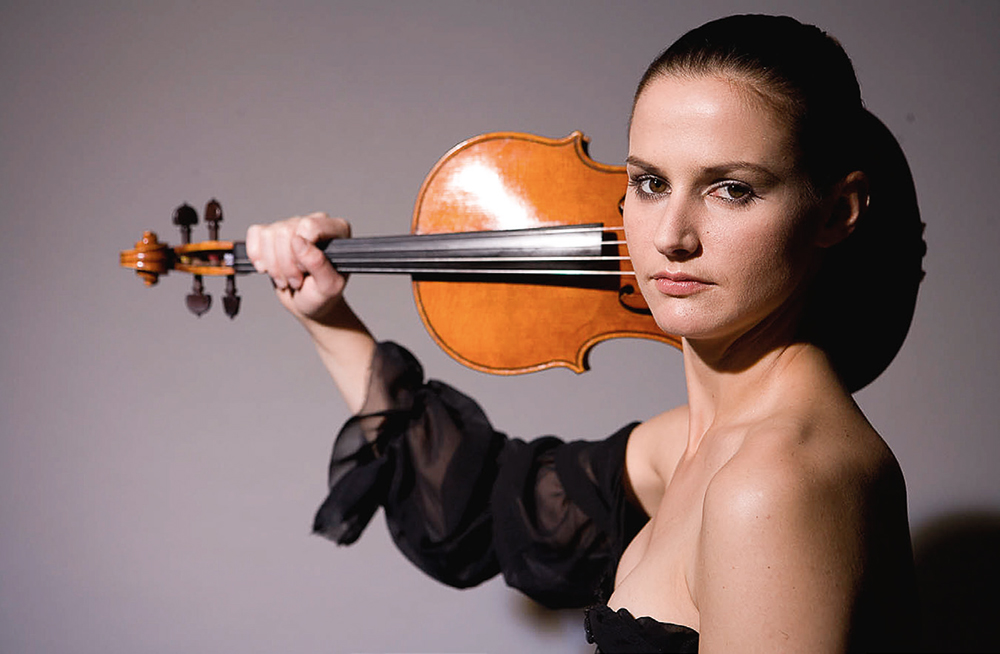Daniela Ivanova’s life is ruled by her love of music. The violist and mdw alumna is a passionate teacher and conductor, performs as a soloist and as a chamber musician, and has also done what only few women have done so far: she’s a member of the Vienna Philharmonic.

For Daniela Ivanova, there’s no such thing as a “normal” workday. Since 2010, she has been a permanent member of the Association of the Vienna Philharmonic, and thus one of just ten women who belong to one of the world’s oldest and most prestigious orchestras. “The demands of this job are pretty exceptional, because you have to be up to standard every single minute,” explains the violist. The repertoire involved is gigantic, she says, and one sometimes plays up to three sessions per day and occasionally even spends around five hours total in front of an audience – like with an afternoon concert at the Musikverein followed by an evening opera performance. One needs great concentration and lots of flexibility in order to learn quickly and be able to adapt to changes right away.
But even so, the violist knew right after the first time she’d substituted at the State Opera that this orchestra was the only one she could ever imagine joining. “I no longer wanted to audition anywhere else. I enjoyed the orchestra so much, especially the solo by concertmaster Rainer Honeck!” That was in 2001, at a performance of Swan Lake. Back then, the violist and Philharmonic member Walter Blovsky, who’d heard Ivanova audition for a scholarship from the Herbert von Karajan Foundation, had asked her if she’d like to substitute. At her first performance, Ivanova was the only woman in the orchestra – but she only realised it after the applause. “Imagine that, I didn’t even notice! Because I hadn’t heard anything about the whole issue with women, and my German wasn’t that good yet, either. Sounds funny, but it’s true,” the violist remembers. Her only concern was to do her part well. The music, she says, let everything else seem unimportant.
Although the Vienna Philharmonic had officially been open to women since 1997, it took a few years for the orchestra to actually begin admitting women as permanent members. For Daniela Ivanova, it happened in 2007: she was first given a permanent position in the Orchestra of the Vienna State Opera, and three years later, she was admitted to the Philharmonic’s association. “As a woman, I did have to prove an awful lot, perhaps more than the men did. But it was advantageous from an artistic standpoint, because I had to be excellent,” remembers the mdw graduate. It’s also strenuous, says Ivanova, to deal with this pressure – although even difficult situations can also be a source of strength. The share of women in the Vienna Philharmonic is currently at just under eight percent, still far less than in other Austrian orchestras. “It could be that our everyday routine scares women off; family life is definitely more complex than in other orchestras,” she continues. But with a new generation coming into its own, she says, the situation now is different than it used to be.
Daniela Ivanova works not just as a member of the Vienna Philharmonic, but also as a chamber musician, as a teacher, and (since age 25) as a conductor – “which is very fulfilling.” The full-blooded musician was born in Bulgaria and learned to read music before she’d learned to write: she began taking piano and violin lessons at the age of four-and-a-half. Her mother had wanted to bring music into the family via Daniela, and “my father immediately agreed, going out and buying a violin within an hour.” She switched to viola later on, which she then studied at Bulgaria’s National Academy of Music. And one day, while attending a master class, she met the violinist Michael Frischenschlager, who taught at the mdw. He encouraged her to come to Vienna. “Once at the mdw, I studied in the viola class of Hans Peter Ochsenhofer. He was really quite inspiring, and he taught me so much,” says Ivanova, remembering the nicest aspect of her student years. Although her period as a student in Vienna was characterised by a strained financial situation, her memories of the mdw are very positive indeed: “The music helped me.”

